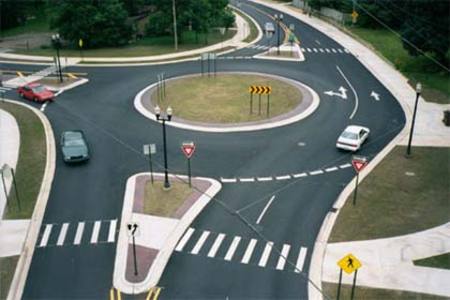The Best Highway Safety Practices Institute Rejects Clarion Calls for Failed Policy II: National 55 mph Speed Limit
07/08/08 08:00 Filed in: Distracted drivingNation Speed Limit
PORTLAND, Ore., July 8 /PRNewswire-USNewswire/ -- Reenacting the failed
1974 National Maximum Speed Law is not a solution. The solution is to properly
engineer our roadways to facilitate the optimum flow of traffic, a
prescription that would reduce our total vehicular carbon footprint and
improve roadway safety. The future is in educating motorists to drive safely
via safety campaigns that promote keep right except to pass, yielding,
courtesy, and safety practices that are based in fact! Programs that create
jobs, reduce our carbon footprint, pollution, and improve the safety and
efficiency of our infrastructure.
1974 National Maximum Speed Law is not a solution. The solution is to properly
engineer our roadways to facilitate the optimum flow of traffic, a
prescription that would reduce our total vehicular carbon footprint and
improve roadway safety. The future is in educating motorists to drive safely
via safety campaigns that promote keep right except to pass, yielding,
courtesy, and safety practices that are based in fact! Programs that create
jobs, reduce our carbon footprint, pollution, and improve the safety and
efficiency of our infrastructure.
Civil engineering solutions can help the energy crisis by focusing on:
* Surface streets and parking lots; where the majority of our fuel
consumption, pollution and accidents occur.
* Reducing time spent idling, stopping, starting, changing speed, hazards,
flow conflicts, cross traffic movements while adopting stronger user and
access management plans.
* Utilizing traffic circles that reduce accidents by more than 70 percent,
fatalities by more than 90 percent, and fuel consumption, pollution, travel
times and overall roadway speeds.
* Promoting better driving habits, such as taking the time to rest if
you're tired and yielding the right-of-way, etc. which improves the flow of
traffic.
* Eliminating traffic flow impeding passive aggressive drivers,
hypermilers, and fleet vehicles with speed governors that are set below the
natural flow of traffic.
* Slow drivers, flow friction and chaos, longer hours of driving to reach
a destination, fatigue, sleep deficit, poor roadway design and roadside
hazards.
* Roadway design and environment determines the speed of traffic, not the
sign.
* The total carbon footprint, which includes how a policy potentially
impacts productivity and its unintended consequences, such as increases in
miles driven to accomplish uncompleted task, extra days of energy use for
services, hotels, restaurants, etc.
Regardless of any act by a Governor or Congress, higher fuel prices will
bring the following results:
* Billions of fewer miles will be driven, with significant reductions in
high risk discretionary driving and lesser rear end collisions, too.
* 2008 highway fatalities and accidents, in total and per motorist mile,
will be significantly below all time lows.
* Reduced traffic volumes will allow more efficient traffic flows,
reducing accidents and fuel consumption.
* Public officials are already erroneously attributing all-the-above for
the success of their program de jure, as justification to further increase
automated citations, fines, fees, regulations, more programs and
justifications to make traffic stops, the elimination of due process and lower
(zero tolerance) enforcement thresholds.
* Adding to the 60,000,000 citations they write now and the premium
surcharges that are based on otherwise safe driving according to the Federal
Highway Administration.
What can "We the People" do to reduce fuel use and improve safety? Go with
the flow, be courteous, and have your community evaluate what it can do to
improve traffic flows, reduce conflicts, and promote safety. And when you're
on a highway, stay right except to pass, and demand our public safety
practices be based on fact!
The Best Highway Safety Practices Institute is a nonprofit organization
dedicated to advancing best highway safety practices. The Institute was
founded in 2004, in Portland, Oregon by professionals who specialize in
highway safety issues. The Institute focuses on education, research, best
practices and their application, and assuring public policy is founded in best
practice.
CONTACT: Chad Dornsife, +1-858-673-1926, or Jeffrey Boly, +1-503-223-5447
Web site: www.bhspi.org/
NOTE TO EDITORS: For more information details of any statements made, or
if you need an opinion on a particular matter email us at info@bhspi.org.
SOURCE Best Highway Safety Practices Institute
Chad Dornsife, +1-858-673-1926, or Jeffrey Boly, +1-503-223-5447, both of The
Best Highway Safety Practices Institute
